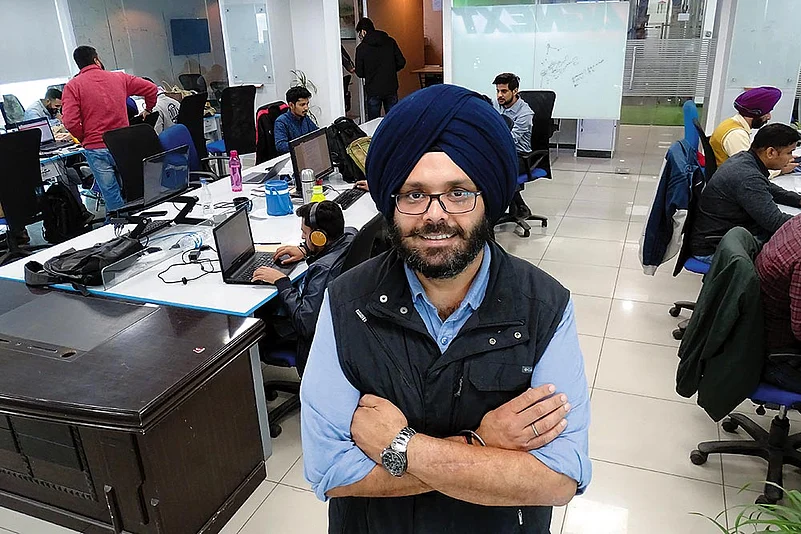Any food can palliate hunger, even starvation rations do. But a complete, nutritious meal operates in an entirely complex matrix—from the farm to the plate. That chapatti you had for lunch, was it made of wheat that had the right amount of nutrients it should? How do you know your glass of milk was fresh, not contaminated/adulterated? Does the farmer have technology to know the grains growing in his field will meet nutritional standards? These questions beguile Indian farming and consumers alike. Some startups are trying to answer them. One such company is the Mohali-based AgNext.
The company captures images through hi-res cameras, satellite, drones and spectral imaging devices, and sources data from systems that use sensors in the fields. An AI-powered backend processes all the images and algorithms to give an accurate analysis. Phew! That sounds geek, right? Well, Taranjeet Singh Bhamra, CEO and co-founder of AgNext, explains why it’s not. Like dal without haldi. Turmeric prices are concomitant with the amount of curcumin—a chemical known for its medicinal properties and responsible for the yellow colour—present in the tuber. AgNext’s data solutions make it easy and fast for the farmer to know if his haldi will be a bright or a pale yellow.
“Tests to determine the curcumin content in labs takes around three to four days. We developed a device that analyses it in four seconds,” says Bhamra, an alumnus of IIT-Kharagpur and IIM-Calcutta, who worked abroad before returning to India in 2015. “We are able to tell farmers that by performing a particular activity at a particular time, they will be able to achieve certain benefits.” Farmers in southern India benefited from AgNext’s help to improve crop quality. In tea, AgNext uses image-processing algorithms to determine what treatment the leaves need for better quality.
An avid basketball player and golfer, Bhamra is extremely disturbed that 65 per cent of the milk available in the market is contaminated. It takes at least 15 days to test milk quality in a lab, but new technology allows on-the-spot examination and result in 15 seconds, he asserts.
Also Read:


























